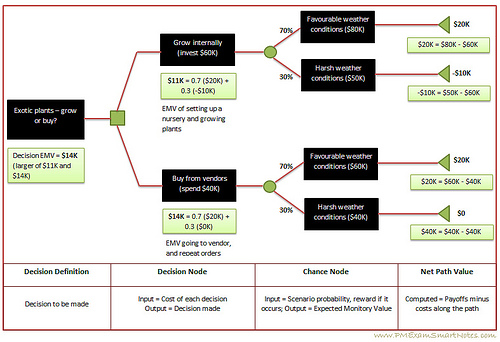The importance of managerial judgement
July 11, 2013
In my last blog post, I looked at how you can tell whether someone has the intellectual firepower to cope with a senior job. This is incredibly important but it’s just the start. In situations where there is no ‘right answer’, people need to exercise judgement and a surprising number of people find this difficult. Good judgement pre-supposes that you’ve understood the situation correctly – but it’s more than that. I’d say that the two key additional factors are courage and intuition.
Courage
Some people just don’t want the responsibility of making decisions. It takes courage to nail your colours to the mast and say “Let’s take this option”. I once interviewed a financial services manager whose role was to ensure the accuracy of the information his organisation reported to the regulator. Because this was an important function, the role was fairly senior and he considered himself to have a very ‘responsible’ job. But when I asked him for an example of a difficult work-related decision he had faced, he could think of nothing. Further probing about his work style revealed that he had built a career around dodging decision-making responsibility. To be fair, he may not have had many opportunities to use his judgement but he certainly hadn’t sought them out.
He may be an extreme case but there are plenty of people who prefer to make recommendations rather than decisions or who mask indecision with a ‘consultative style’. As a consultant (and professional ‘recommendation maker’) myself, I sometimes look at my clients in awe and think “Nope, I don’t know if I could carry the weight of that decision on my own”. It takes guts to have the buck stop with you.
The limits of logic
Some managers would be willing to make big decisions but can’t work out the criteria on which to base them. This is the curse of the over-analytical, perfectionist mind. One of the brightest people I ever assessed was an actuary on a leadership programme. She was used to working with the kind of complex numerical data that would send many of us into meltdown. Her analytical skills were second to none and she had a really strong perfectionist streak that meant she worked with absolute precision. And at the end of her analysis, an answer would generally emerge. A clear answer, backed by facts and logic.
She was looking to move into a leadership role and her cognitive profile suggested she had the intellect to handle complex strategic issues with ease. But she couldn’t. She could get to the stage where she had identified the issues and devised some options. She could tell you the potential benefits of each, the associated risks, the time frames, resource requirements and so on and so on. She could keep analysing until she had wrung the data dry but the ‘right’ answer would never emerge. She had to choose. And this is where logic runs out. Choosing (i.e. judgement) requires something else – intuition, gut feeling, an inner voice, call it what you will, but it’s something that leads you to say “I prefer that one” or “This option feels right”. It’s scary because you cannot be certain you’re right, which is hellish for a perfectionist.
A leap of faith
In this interesting recent Forbes blog, John Baldoni argues that managers are taught to favour data over instincts. I’d go further and say that people are not taught how to engage with their intuition. Reliance on ‘gut feeling’ alone can be dangerous, leading to all kinds of cognitive biases, as I talked about in an earlier post. The most successful decision makers I’ve met are the ones who can take note of a hunch, play with it and see how it stacks up against the facts. It’s not one or the other, head or heart, it’s a subtle, complex blending of the two. And sometimes, it is simply a leap of faith.  Sometimes a leader has to make sense of the situation, examine the facts, listen to their intuition and then just wholeheartedly commit to something, without constantly wondering if another option might have been better. And that’s good judgement.
Sometimes a leader has to make sense of the situation, examine the facts, listen to their intuition and then just wholeheartedly commit to something, without constantly wondering if another option might have been better. And that’s good judgement.
Photo credits:






wonderful issues altogether, you simply won a new reader.
What might you suggest in regards to your publish that you
just made some days ago? Any positive?